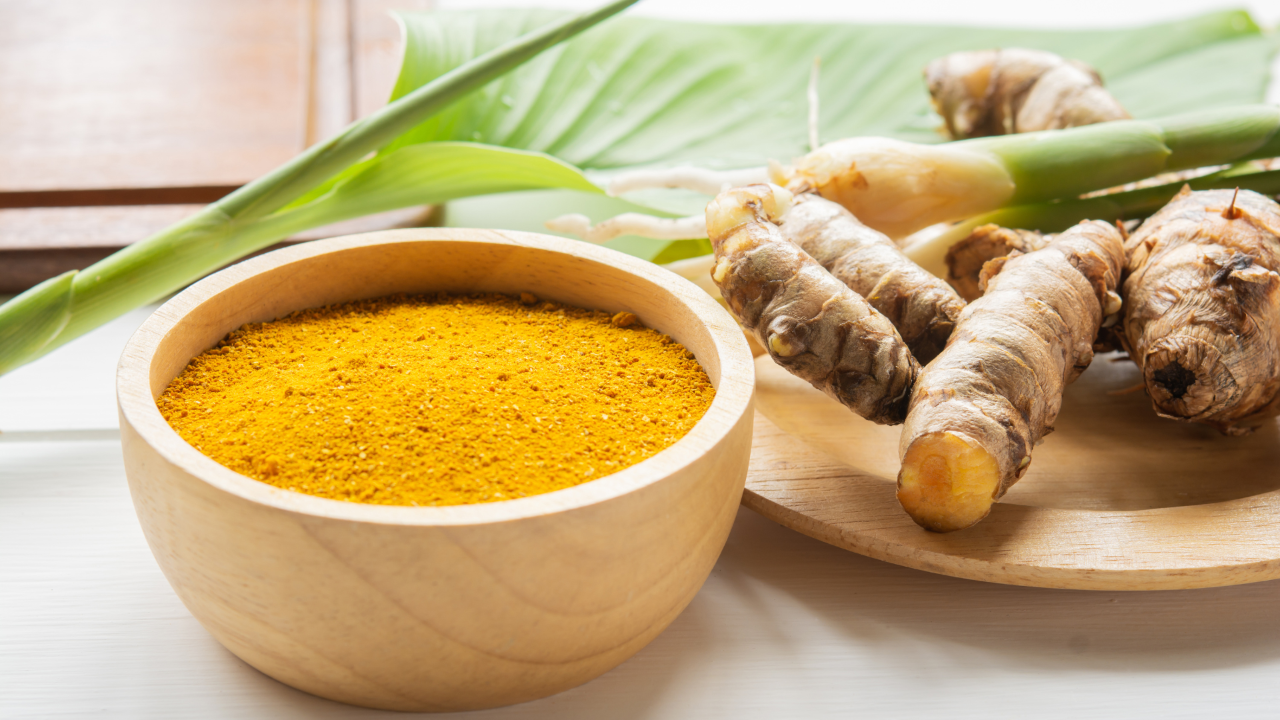Using Turmeric To Fight Inflammation
Feb 07, 2023
Turmeric is one of the most effective natural anti-inflammatories, for treating issues like arthritis, joint pain, injuries and skin conditions like eczema and acne. It has an enormous evidence base and faultless safety record.
In this article:
- What makes turmeric work
- How turmeric fights inflammation
- What conditions benefit from turmeric
- The best way to take turmeric
- Safety Considerations
What makes turmeric work
Have you ever cooked with turmeric? If so you will have seen that it stains pretty much everything it comes into contact with. The chemicals that stain every object known to man are the very ones that make turmeric work! These are a group of chemicals called curcuminoids that collectively are responsible for that vivid orange and lingering yellow colour spectrum in turmeric. Whilst there are other active components in turmeric such as resins, flavonoids and other goodies, it is the curcuminoids that have been the most widely researched.
How turmeric fights inflammation
Turmeric fights inflammation by interrupting the production of chemicals produced by the body that actually fuel inflammation. There are a group of chemicals in the body called prostaglandins. These are communication compounds that regulate several things in the body. They regulate some aspects of pain signalling. They regulate some aspects of smooth muscle contraction. The main thin g that they regulate though is the inflammatory response. They can make it worse or they can make it better. There are three prostaglandins - series 1, series 2, and series 3. Series 1 has a mildly anti-inflammatory effect. Series 2 ha a powerfully pro inflammatory effect (it switches on and aggravates inflammation), and series 3 is powerfully anti-inflammatory.
Curcuminoids work in a very similar way to a class of drugs called COX-2 inhibitors. They actually block the activity of an enzyme called cyclo-oxygenase 2. This enzyme is vital for manufacturing the series 2 prostaglandins - the ones that actually fire up inflammation. So, if we stop them being made (which the curcuminoids do), then we naturally cut inflammation right down!
What conditions benefit from turmeric
So, purely from the anti-inflammatory point of view, turmeric will benefit any condition or issue that has inflammation at its heart. Some of the most widely researched are:
- Acne
- Eczema
- Rheumatoid Arthritis
- Osteoarthritis
- Sports Injuries
- Cardiovascular disease - this is partly due to the anti-inflammatory activity as heart disease IS an inflammatory condition, but it is also partly due to something else which you will discover in the safety section.
The best way to take turmeric
Now this is a really important point to be aware of. The way that you use turmeric matters in the context of reducing inflammation. It is of course a common spice used in many traditional cuisines so it is most widely used as a powder added to food. This can have some benefit from the point of view that it can give the antioxidant level of your food a bit of a boost, which can only be a good thing, but it is important to note that the actually anti-inflammatory effect when consuming turmeric like this is limited.
Most of the research that has been done on turmeric which has shown effective anti-inflammatory action, has been done using standardised extracts. This means that the supplements in question had a guaranteed known concentrated dose of curcuminoids in them. It is the concentrated extracts that really take us into the therapeutic use of turmeric.
So what does this mean for you if you want to use turmeric to combat inflammation? Simply look for a supplement that is a high strength extract. This will have something on the label, when you look at the dosage panel on the back along the lines of ‘turmeric extract 1000mg (equivalent to 40,000mg). Now each product says it slightly differently and I am just making those numbers up to illustrate a point, but that is the type of thing that you are looking for.
Safety considerations
Turmeric is probably one of the safest supplements that you could ever use, but there is one situation where you absolutely mustn’t use it, but this also demonstrates one of its potential benefits outside of being an anti-inflammatory.
If you take any anticoagulant or ‘blood thinner’ medications then you must avoid turmeric. This is because the curcuminoids are also a very powerful anticoagulant, meaning that they interrupt blood clotting. So do anticoagulant drugs. Bring these two together and the risk of haemorrhage is a very real one. So, if you take these drugs, best avoid high strength turmeric.
As I mentioned earlier, this is also a reason why turmeric is very good for long term heart health. It reduces clotting so if anyone is concerned about issues such as heart attacks or strokes, turmeric could form part of their long term protective regime.




